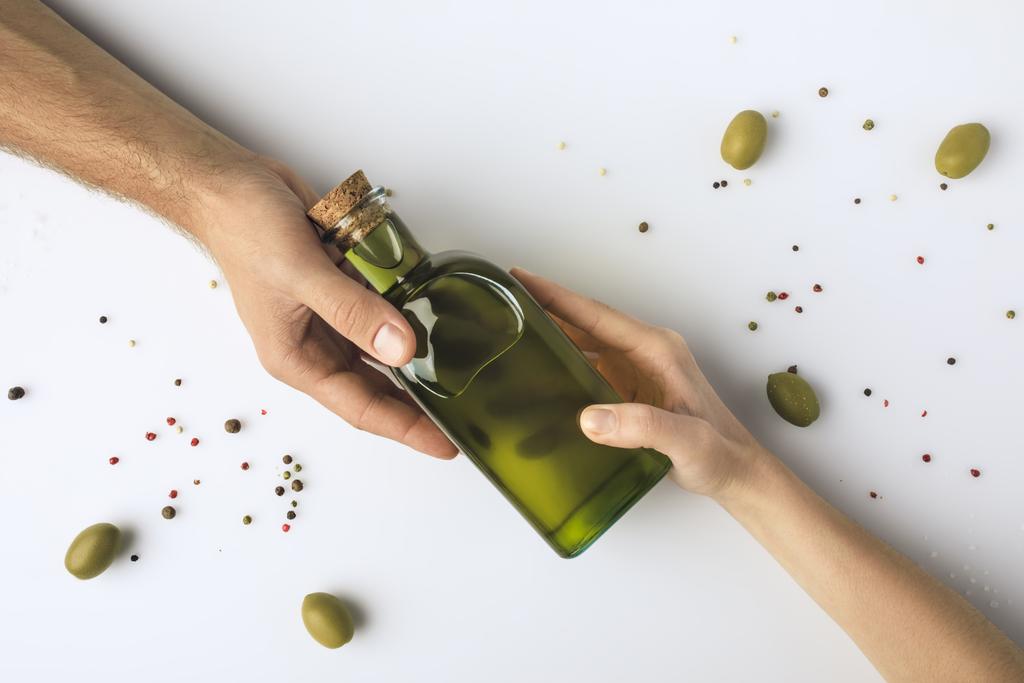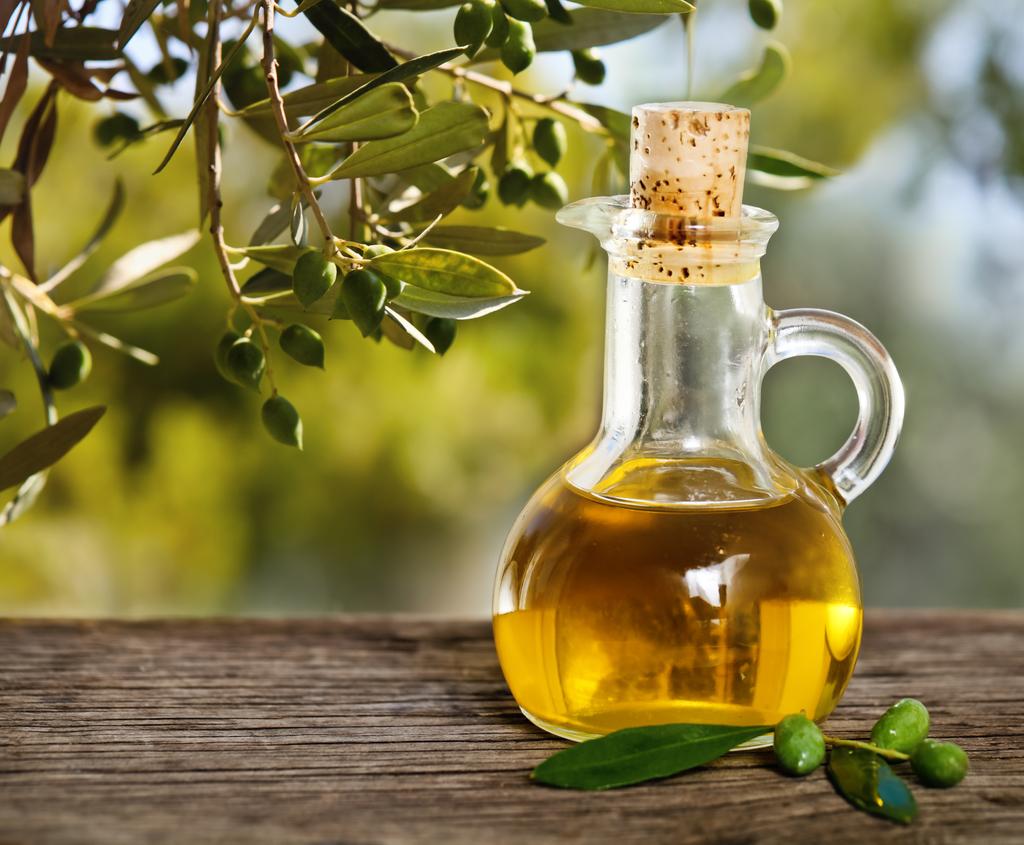Olive oil is supposed to be healthy: you hear and read that again and again. But why is that – and how does olive oil compare to other vegetable fats?
Olive oil is considered very healthy – that’s why it is an essential part of healthy diets and even diets like the Mediterranean diet. Some attribute the healthy effect to the high proportion of monounsaturated fatty acids, others to the many polyphenols. The latter belong to the secondary plant substances, give olive oil its bitter and pungent aromas and are said to have numerous positive effects. However, studies also show that there is still a need for research into the health value of olive oil – and that other vegetable oils are not necessarily less healthy. In addition, there are quality differences in olive oil that affect the health value.
Lots of healthy oleic acid: the ingredients of olive oil
Compared to many other vegetable oils, olive oil is characterized by its high content of oleic acid (a monounsaturated fatty acid).
14 g saturated fat
73 g monounsaturated fatty acids
11 g polyunsaturated fatty acids
14 mg vitamin E
60 mcg vitamin K
Is Olive Oil Healthy? Assessment based on the ingredients
To find out if olive oil is healthy, you can first look at the individual ingredients. The isolated ingredients do not necessarily have the same effect as the finished product. Nevertheless, the analysis of the ingredients can provide initial clues. The focus is on the ingredients that are supposed to make olive oil particularly healthy – i.e. oleic acid and polyphenols.
Olive oil consists mainly of oleic acid. This monounsaturated fatty acid is said to have numerous positive properties:
According to a review, scientists in two intervention studies found that oleic acid has anti-inflammatory effects. As part of the studies, a total of almost 280 people followed a Mediterranean diet rich in olive oil. As a result, inflammatory markers in the blood dropped, which the study authors believe is apparently due to oleic acid. An observational study of around 3,000 Japanese women came to the same conclusion. However, both studies also say that the omega-6 fatty acid linoleic acid and the omega-3 fatty acid alpha-linolenic acid also have an anti-inflammatory effect.
In experiments on cell cultures, oleic acid has an anti-carcinogenic effect, i.e. it inhibits the growth of tumor cells. However, clinical studies in humans are still pending.
According to two other studies, oleic acid helps against insulin resistance and strengthens the immune system.

Olive oil is healthy, but usually not suitable for searing
How healthy olive oil is also depends on how you use it. If you heat olive oil, for example, you have to be careful: If the smoke point of the oil is exceeded, toxic substances can form. Thanks to the heat-stable oleic acid, olive oils can usually be heated up to around 180 degrees. So you can use them for baking, steaming and gentle frying. You should only avoid searing or deep-frying at high temperatures.

